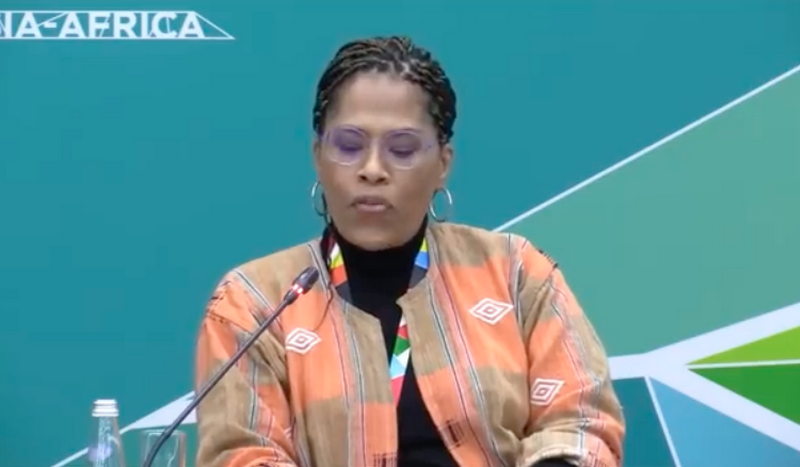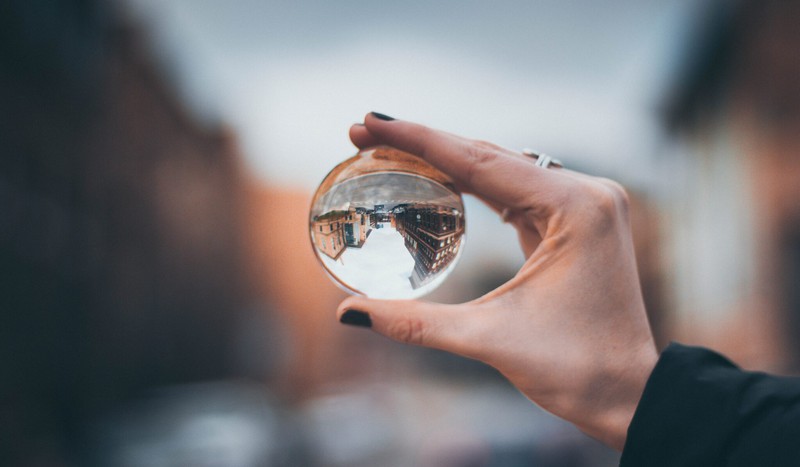zak
The Living Force
Le gouvernement suit l'avis de la HAS et dit non à la réintégration des soignants non vaccinés
Le ministre de la Santé François Braun a annoncé ce 22 juillet que le gouvernement restait opposé à la réintégration des soignants non vaccinés contre le Covid au sein des établissements de santé, suivant ainsi l'avis de la Haute Autorité de santé (HAS), mais aussi de l'Académie de médecine et du Conseil scientifique. Il a précisé, au cours d'un déplacement en Seine-et-Marne, qu'il réunirait « dès le début de la semaine prochaine les organisations syndicales pour leur expliquer la situation ».
Le Sénat avait ouvert la porte à la réintégration des soignants non vaccinés dans le cadre du projet de loi consacré à la lutte contre le Covid et la Commission mixte paritaire attendait le feu vert de la Haute Autorité de santé concernant ce point. Dans son avis du 21 juillet faisant suite à une saisine du ministre de la Santé, l'instance a tranché, en préconisant le maintien de l'obligation vaccinale des personnels exerçant dans les établissements de santé et médico-sociaux.
« Dans le contexte d'une septième vague, au vu de l'efficacité des vaccins et des incertitudes concernant la suite de l'épidémie, la HAS considère que les données ne sont pas de nature à remettre en cause aujourd'hui cette obligation vaccinale », écrit la Haute Autorité.
La dose de rappel, efficace contre les formes sévères
La HAS s'était penchée sur la question de l'obligation vaccinale des professionnels de santé en juillet dernier. Elle estimait alors cette mesure « justifiée au regard des enjeux ». Pour actualiser ce premier avis, la HAS a pris en compte divers éléments, comme le contexte actuel, marqué par la prédominance du sous-lignage BA.5 d'Omicron. Les données de Santé publique France montrent un ralentissement de la circulation du virus, mais des indicateurs qui restent à un niveau très élevé et une augmentation des décès.
La Haute Autorité a également pris en compte les données d'efficacité et de sécurité de la dose de rappel. Les récentes données d'Epi-Phare et de la Direction de la recherche, des études, de l'évaluation et des statistiques (Drees) sur le schéma à trois doses de vaccins à ARNm (primovaccination et première dose de rappel) ont montré « un regain de protection contre les infections apportées par la dose de rappel », rapporte la HAS. La protection vaccinale est de 45 à 55 % contre les infections symptomatiques et d'environ 80 % contre les formes sévères dans les trois mois suivant l'injection de cette dose. L'efficacité se maintient à des niveaux élevés jusqu'à six mois contre les formes sévères.
« L'efficacité vaccinale sur les variants BA.4 et BA.5 est probablement comparable à celle observée précédemment vis-à-vis des variants BA.1 et BA.2 (données préliminaires du Royaume-Uni publiées par l'UKHSA) », estime la HAS.
Protéger les plus vulnérables
La Haute Autorité rappelle aussi que la survenue d'effets indésirables graves après vaccination contre le Covid est « extrêmement faible », alors que plus de 30 millions de doses de rappel ont déjà été administrées. Les effets indésirables rapportés après le rappel sont proches de ceux rapportés après primo-vaccination.
« Au vu du contexte épidémique dynamique, des incertitudes sur l'évolution de l'épidémie dans les prochains mois et de l'efficacité d'un schéma vaccinal complet à réduire le risque d'être infecté et de transmettre la maladie, la HAS considère que les données ne sont pas de nature à remettre en cause l'obligation vaccinale des personnels des secteurs sanitaire et médico-social qui concourt à une meilleure protection des personnes soignées ou accompagnées, au premier rang desquelles les plus vulnérables », conclut ainsi la HAS.
lequotidiendumedecin.fr/specialites/infectiologie/le-gouvernement-suit-lavis-de-la-has-et-dit-non-la-reintegration-des-soignants-non-vaccines?xtor=EPR-6-[NL_flash]-[20220722]&utm_content=20220722&utm_campaign=NL_flashinfo&utm_medium=newsletter&utm_source=qdm
The government follows the opinion of the HAS and says no to the reinstatement of non-vaccinated caregivers
Health Minister François Braun announced on 22 July that the government remained opposed to the reinstatement of unvaccinated Covid caregivers in health establishments, thus following the opinion of the French National Authority for Health (HAS), but also of the Academy of Medicine and the Scientific Council. During a visit to Seine-et-Marne, he said that he would meet "at the beginning of next week with the trade unions to explain the situation to them".
The Senate had opened the door to the reinstatement of unvaccinated healthcare workers in the framework of the bill devoted to the fight against Covid and the Joint Committee was waiting for the green light from the High Authority for Health on this point. In its opinion of 21 July, following a referral from the Minister of Health, the authority ruled in favour of maintaining the vaccination requirement for staff working in health and medico-social establishments.
"In the context of a seventh wave, in view of the effectiveness of the vaccines and the uncertainties concerning the continuation of the epidemic, the HAS considers that the data are not such as to call into question this vaccination obligation today", writes the High Authority.
The booster dose, effective against severe forms
The HAS examined the issue of compulsory vaccination for health professionals last July. At the time, it considered this measure "justified in view of the issues at stake". To update this first opinion, the HAS took into account various elements, such as the current context, marked by the predominance of Omicron sublineage BA.5. Data from Santé publique France show a slowdown in the circulation of the virus, but indicators remain at a very high level and there has been an increase in deaths.
The High Authority also took into account the efficacy and safety data of the booster dose. Recent data from Epi-Phare and the Directorate for Research, Studies, Evaluation and Statistics (Drees) on the three-dose mRNA vaccine regimen (primary vaccination and first booster dose) have shown "an increase in protection against infections provided by the booster dose", reports the HAS. Vaccine protection is 45-55% against symptomatic infections and around 80% against severe forms within three months of the injection of this dose. Efficacy is maintained at high levels for up to six months against severe forms.
"The vaccine efficacy against BA.4 and BA.5 variants is probably comparable to that previously observed against BA.1 and BA.2 variants (preliminary data from the United Kingdom published by the UKHSA)," the HAS estimates.
Protecting the most vulnerable
The HAS also points out that the occurrence of serious adverse events after vaccination against Covid is "extremely low", even though more than 30 million booster doses have already been administered. The adverse events reported after the booster are similar to those reported after primary vaccination.
"In view of the dynamic epidemic context, the uncertainties about the evolution of the epidemic in the coming months and the effectiveness of a complete vaccination scheme in reducing the risk of being infected and transmitting the disease, the HAS considers that the data are not such as to call into question the vaccination obligation for staff in the health and medico-social sectors, which contributes to a better protection of the people being cared for or accompanied, first and foremost those who are the most vulnerable", concludes the HAS.
The Senate had opened the door to the reinstatement of unvaccinated healthcare workers in the framework of the bill devoted to the fight against Covid and the Joint Committee was waiting for the green light from the High Authority for Health on this point. In its opinion of 21 July, following a referral from the Minister of Health, the authority ruled in favour of maintaining the vaccination requirement for staff working in health and medico-social establishments.
"In the context of a seventh wave, in view of the effectiveness of the vaccines and the uncertainties concerning the continuation of the epidemic, the HAS considers that the data are not such as to call into question this vaccination obligation today", writes the High Authority.
The booster dose, effective against severe forms
The HAS examined the issue of compulsory vaccination for health professionals last July. At the time, it considered this measure "justified in view of the issues at stake". To update this first opinion, the HAS took into account various elements, such as the current context, marked by the predominance of Omicron sublineage BA.5. Data from Santé publique France show a slowdown in the circulation of the virus, but indicators remain at a very high level and there has been an increase in deaths.
The High Authority also took into account the efficacy and safety data of the booster dose. Recent data from Epi-Phare and the Directorate for Research, Studies, Evaluation and Statistics (Drees) on the three-dose mRNA vaccine regimen (primary vaccination and first booster dose) have shown "an increase in protection against infections provided by the booster dose", reports the HAS. Vaccine protection is 45-55% against symptomatic infections and around 80% against severe forms within three months of the injection of this dose. Efficacy is maintained at high levels for up to six months against severe forms.
"The vaccine efficacy against BA.4 and BA.5 variants is probably comparable to that previously observed against BA.1 and BA.2 variants (preliminary data from the United Kingdom published by the UKHSA)," the HAS estimates.
Protecting the most vulnerable
The HAS also points out that the occurrence of serious adverse events after vaccination against Covid is "extremely low", even though more than 30 million booster doses have already been administered. The adverse events reported after the booster are similar to those reported after primary vaccination.
"In view of the dynamic epidemic context, the uncertainties about the evolution of the epidemic in the coming months and the effectiveness of a complete vaccination scheme in reducing the risk of being infected and transmitting the disease, the HAS considers that the data are not such as to call into question the vaccination obligation for staff in the health and medico-social sectors, which contributes to a better protection of the people being cared for or accompanied, first and foremost those who are the most vulnerable", concludes the HAS.
Même si au final, on décidait en haut lieu d'intégrer ces soignants non vaccinés, je ne saurais dire s'ils accepteraient de tourner la page et de retravailler à nouveau pour une médecine qui a perdu son sens humain.
Even if, in the end, it was decided in high places to integrate these unvaccinated caregivers, I cannot say whether they would be willing to turn the page and work again for a medicine that has lost its human meaning.





